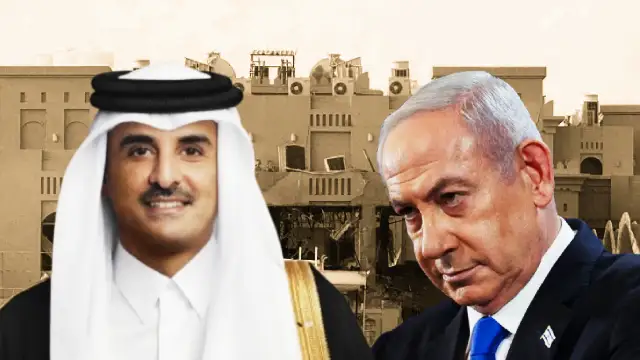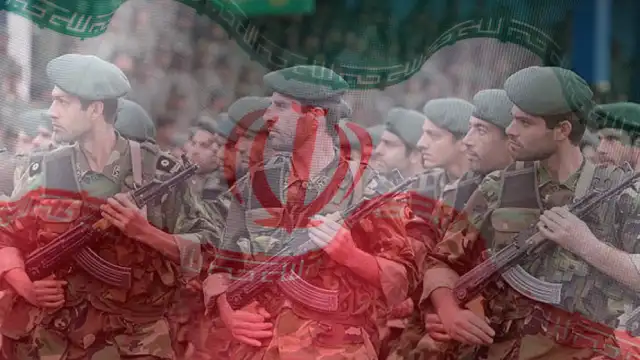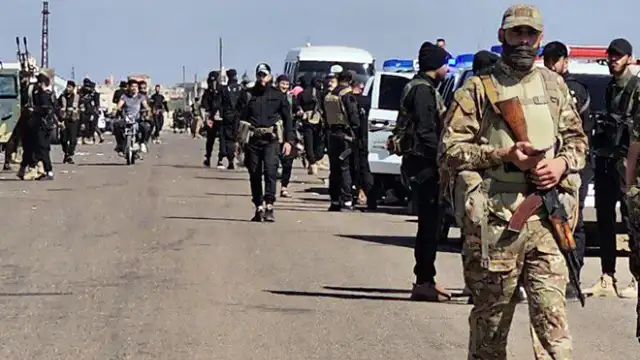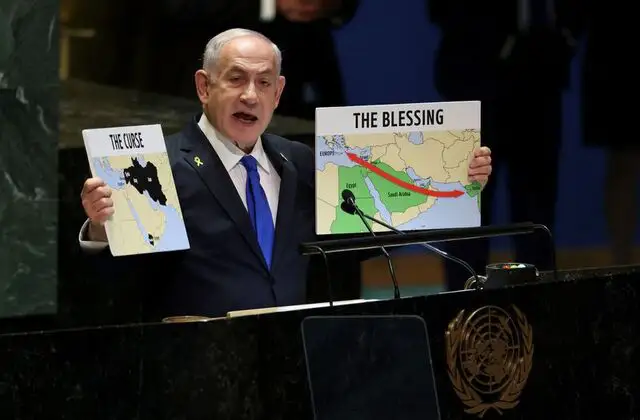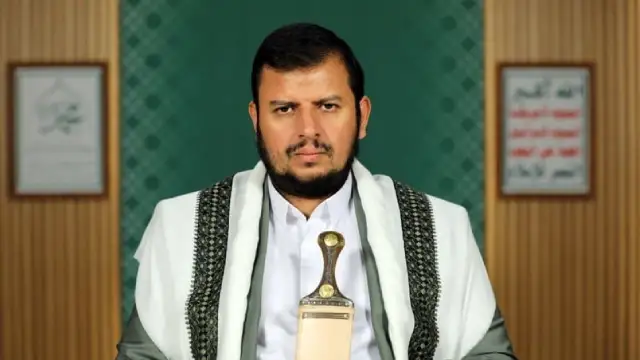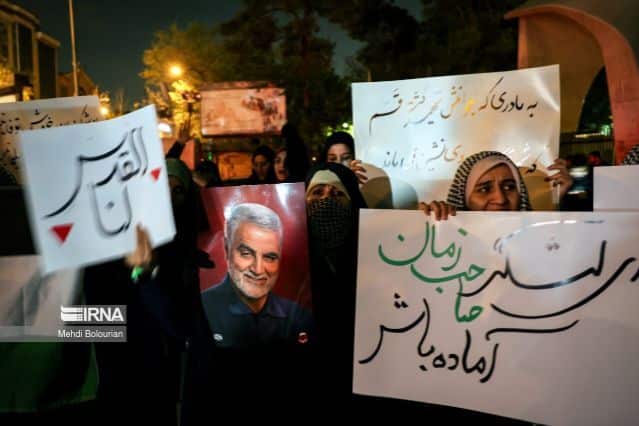In the gleaming towers of Doha’s West Bay Lagoon area, a meeting that should have brought hope for peace instead became the target of warplanes. Tuesday’s Israeli attack on Qatar marked a turning point that few saw coming—the moment when diplomatic immunity died in West Asia.
The compound housed Hamas leadership, gathered not for plotting violence but for ceasefire negotiations.
They gathered in the neighbourhood, not the same complex though, to discuss an American proposal on the Gaza ceasefire.
They were to discuss the release of the leftover Israeli prisoners who remain captive in the resistance’s complex web of dungeons in Gaza.
Yet, they didn’t know that Israel had other plans.
The Israeli attack on Qatar proved that Tel Aviv seek no ceasefire, no end to the conflict and no release of hostages.
When Israeli jets screamed overhead and missiles found their targets, the testament was inscribed on a new stone tablet.
When the smoke cleared, the fundamental rules of regional engagement lay in ruins alongside the debris.
Victory turns to embarrassment after Israeli attack on Qatar
Israeli officials initially celebrated their strike on the West Bay Lagoon compound.
Military briefings painted pictures of successful operations against Hamas leadership assembled for negotiations.
The narrative seemed clean, decisive—precisely what Benjamin Netanyahu’s government needed.
Yet within hours, the story began to unravel.
Hamas issued a statement that shattered Israeli claims. The resistance organisation claimed that their top negotiators have been safe.
“We confirm the enemy’s failure to assassinate the brothers in the negotiating delegation, while a number of martyred brothers ascended to the heights of glory,” Hamas said in a statement condemning Israeli attacks on Qatar targeting the negotiators.
Although the target was top Hamas leader and negotiator Khalil al-Hayya, the Israeli attack on the building in Qatar killed his son and the director of his office.
In its statement on Tuesday, Hamas mentioned the names of those killed as—Jihad Labad (Abu Bilal), the director of the Office of Khalil al-Hayya, Hammam al-Hayya (Abu Yahya), the son of Khalil al-Hayya, and their companions, Abdullah Abdul Wahid (Abu Khalil), Moumen Hassouna (Abu Omar) and Ahmed al-Mamlouk (Abu Malik).
“We also mourn the martyr, Warrant Officer/ Badr Saad Muhammad Al-Humaidi, from the Qatari Internal Security (Lekhwiya),” Hamas added.
The Israeli attack on Qatar had failed in its primary objective while succeeding in something far more dangerous—destroying the very foundation of peace mediation in the region.
Mr Netanyahu’s response revealed the true nature of this operation.
Rather than acknowledging the mission’s failure, he doubled down.
He celebrated the breach of sovereignty against an Arab country actively mediating for peace.
More ominously, he threatened further attacks on Qatar, transforming a tactical failure into a strategic catastrophe for regional stability.
The failed strike exposed a troubling reality.
Israeli attacks on Qatar achieved nothing beyond demonstrating the country’s willingness to strike neighbouring nations with complete impunity.
The operation showcased military capability while destroying diplomatic possibilities to end the conflict in Gaza.
Betraying the mediator: Qatar’s impossible position.
To understand the magnitude of this betrayal, one must first grasp Qatar’s unique position in West Asian geopolitics.
This small Gulf nation had spent decades carefully constructing a role that seemed impossible—friend to all, enemy to none.
Amir Tamim bin Hamad bin Khalifa Al Thani had masterfully positioned his country as the region’s indispensable mediator.
When Palestinian resistance and Israeli forces clash, Qatar steps forward as a peacemaker.
During the darkest moments of conflict, Doha’s conference rooms became sanctuaries where enemies could speak without bloodshed.
The country’s credentials as a mediator ran deep.
Alongside Egypt, Qatar served as a crucial force assisting the United States and Israel in securing the release of prisoners taken during Hamas’s Operation Al-Aqsa Flood on October 7th 2023.
This delicate work required trust from all parties—trust that evaporated in Tuesday’s attack.
Qatar’s value to Western interests extended far beyond mediation.
The nation houses the largest American military base in the region, a strategic asset that underpinned US influence across West Asia.
Qatar had also proven its loyalty by supporting Western efforts to topple Bashar al-Assad‘s Ba’ath Socialist government in Syria.
Perhaps most remarkably, Qatar had maintained a working partnership with Israel itself.
This relationship facilitated negotiations with Palestinian resistance while enabling Qatari funding of the Hamas-led government in Gaza since 2005.
The arrangement required extraordinary diplomatic skill—balancing support for Palestinian governance with cooperation with Israeli security interests.
Qatar’s ties with Israel deepened further during the 2022 FIFA World Cup.
This intricate web of relationships made Tuesday’s strike all the more shocking.
Can monarchs remain silent?
The Israeli attack on Qatar exposed the hollow nature of Arab solidarity.
For months, Arab monarchies had watched Israel attack and kill civilians across Gaza, Iran, Lebanon, Syria and Yemen.
These US-allied states—Jordan, Saudi Arabia, the UAE—had chosen paths of least resistance.
Some remained silent spectators to the carnage.
Others offered carefully worded condemnations that carried no consequences.
Still, others proved quietly complicit in Israeli operations.
Not only did they remain silent on the Israeli attacks on Palestine and the neighbourhood, they also aided the US and Israel in launching their aggression against Iran in June.
Moreover, countries like Saudi Arabia and the UAE have been complicit in aiding Israel and the US against their common foe—Yemen.
Their people watched this betrayal with growing anger, yet monarchical state machinery suppressed any possibility of large-scale protests against their governments’ Israel policies.
The calculation seemed clear—remain meek and servile towards Israel and the US-led West, and avoid becoming targets themselves.
Qatar had followed this formula more successfully than most.
The nation had bent over backwards to accommodate Western and Israeli interests while maintaining its mediating role.
Yet Tel Aviv’s decision to strike Qatar anyway sent a chilling message across the region.
No amount of cooperation, no degree of accommodation, no depth of partnership could guarantee safety from Israeli attack.
The assault on this crucial Arab state revealed that Israel’s neighbours remain vulnerable regardless of their relationships with Tel Aviv.
Netanyahu’s gambit: War as survival kit
Mr Netanyahu’s decision to attack a key mediator while threatening further strikes against Qatar served domestic political needs more than strategic military objectives.
The Israeli prime minister faced mounting pressure at home.
His government confronts corruption charges, particularly surrounding the infamous “Qatargate scandal”.
Israeli liberal newspaper Haaretz alleged this scandal exposed how Mr Netanyahu’s government had aided Hamas while ignoring Shin Bet intelligence warnings about potential attacks on Israeli territories in 2023 through Doha.
By expanding the war’s scope, Mr Netanyahu could retain power while evading a potential collapse of his government and, in the worst-case scenario, a corruption trial.
The strategy requires constant escalation, continuous conflict, and the deployment of “Greater Israel” rhetoric to maintain his far-right coalition’s support.
The war Mr Netanyahu had launched with stated goals of eliminating Hamas had instead killed over 64,000 people.
The United Nations condemned these actions as “genocide,” backed by the majority of countries worldwide. Yet rather than seeking de-escalation, Mr Netanyahu chose to widen the conflict by attacking Qatar.
This approach served his immediate political needs while destabilising the entire region.
By breaching trust with mediators and threatening further attacks, Mr Netanyahu demonstrated his government’s disinterest in achieving genuine peace with Hamas or ending the Gaza conflict.
International response to Israeli attack on Qatar
The global reaction to the Israeli attack on Qatar revealed the limits of international law and diplomatic pressure.
The US, despite housing its largest regional military base in Qatar, offered only tepid criticism.
President Donald Trump’s response epitomised this contradiction.
He criticised the Israeli attacks yet refused to condemn the incident outright.
Instead, Mr Trump adopted a middle path that effectively endorsed Israel’s breach of Qatar’s sovereignty.
His administration’s position demonstrated that verbal disapproval would not translate into meaningful consequences.
European leaders followed similar patterns.
They condemned the attack while offering no substantive measures to prevent future aggression.
The message became clear—Israel could attack sovereign nations with impunity, confident that international response would remain limited to strongly worded statements.
This dynamic emboldened Mr Netanyahu further.
Despite growing anti-Israeli sentiment worldwide, he retained Washington’s backing.
American support eliminated any realistic prospect of international intervention, removing constraints on Israeli military action across the region.
When sanctuary becomes target
The Israeli attack on Qatar fundamentally altered West Asian dynamics.
If a crucial American ally hosting the largest US military base in the region could not escape Israeli aggression, no Arab state enjoyed genuine security.
The precedent established by this assault transformed regional calculations overnight.
Qatar’s planned response illustrates the new constraints facing Arab nations.
Qatari officials will visit the United States to meet Mr Trump and raise their concerns, but military confrontation with Israel remains unthinkable.
Despite Doha’s public anger, the country cannot risk further escalation against an adversary backed by American power.
Other Gulf monarchies face similar limitations.
Saudi Arabia, the UAE, and other regional powers will likely restrict their responses to issuing condemnations about the Israeli attack on Qatar.
Their inaction will encourage further Israeli aggression, creating a cycle where each successful attack emboldens the next.
Under the pretext of self-defence, Israel may now feel free to launch attacks against additional countries in the region.
The destruction of diplomatic norms means traditional sanctuaries—mediator nations, US allies, states hosting American bases—no longer enjoy protection from Israeli military action.
Mediation killed, peace becomes casualty
Perhaps the most tragic consequence of the Israeli attack on Qatar extends beyond immediate diplomatic damage.
By targeting the very mediators working towards conflict resolution, Israel has chosen escalation over diplomacy.
The assault undermines ceasefire negotiations and peace mediation efforts across the entire region.
The attack transformed a moment of potential breakthrough into another cycle of violence and recrimination.
Qatar’s role as a regional peacemaker now faces fundamental questions.
How can a nation mediate conflicts when it cannot guarantee its own security?
How can negotiating parties trust a mediator who remains vulnerable to attack by one side in the dispute?
The broader implications stretch across ongoing conflicts throughout West Asia.
If Israel can attack mediators with impunity, diplomatic solutions become increasingly impossible.
Military force displaces negotiation as the primary tool of statecraft, ensuring that violence rather than dialogue shapes regional futures.
The choice made in the coming weeks will determine whether diplomacy retains any role in West Asian conflict resolution.
In the gleaming towers of Doha’s West Bay Lagoon area, the illusion of sanctuary has been shattered.
What emerges from the rubble will determine whether peace remains possible in a region increasingly defined by the logic of perpetual conflict.
Join our channels on Telegram and WhatsApp to receive geopolitical updates, videos and more.

